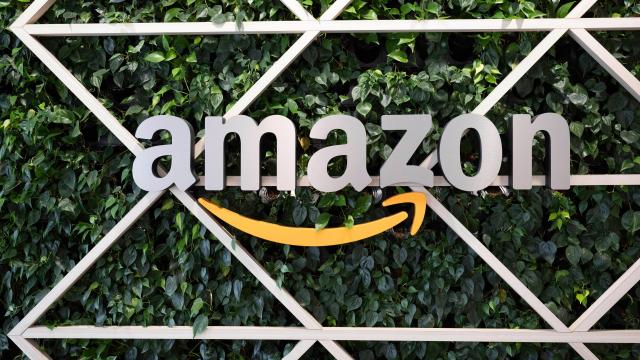Federal Trade Commissioner Lina Khan is finally entering the ring with Amazon, her oldest antitrust nemesis. The agency, along with 17 other state attorneys general, is officially suing Jezz Bezos’s e-commerce baby for growing and metastasizing into a trillion-dollar anti-competitive monopoly, allegedly at the expense of consumers and sellers.
On Tuesday, the FTC and the attorneys general filed the historic lawsuit, which accuses the e-commerce giant of using “interlocking anticompetitive and unfair strategies” to maintain an illegal monopoly. The landmark 172-page suit, filed in Western Washington district court, claims Amazon leveraged its monopoly power to simultaneously raise prices for consumers and crush would-be competitors. Today’s complaint builds off of a years-long investigation into Amazon’s business practices and marks one of the most significant legal challenges to the company since its founding three decades ago.
“We’re bringing this case because Amazon’s illegal conduct has stifled competition across a huge swath of the online economy,” FTC Bureau of Competition Deputy Director John Newman said in a statement. “Amazon is a monopolist that uses its power to hike prices on American shoppers and charge sky-high fees on hundreds of thousands of online sellers.”
The complaint focuses on alleged anticompetitive practices in two distinct areas, the market that serves online consumers and the market for online marketplace service for sellers. Both consumers and sellers are being harmed, the suit alleges, all for the benefit of Amazon. Attorneys general from New York, Connecticut, Pennsylvania, Delaware, Main, Maryland, Massachusets, and Michigan were amongst those who singed onto the complaint.
On the seller side, the complaint claims Amazon engages in a number of anti-competitive practices such as anti-discounting measures that deter sellers from offering lower products on non-Amazon markets and pressuring sellers to use Amazon’s fulfillment service in order to obtain “Prime” eligibility for its products. The suit claims these tactics have raised costs for sellers and limited competitors’ ability to fairly compete with the giant. Amazon made up 39.5% of the US e-commerce market last year according to Insider Intelligence.
Consumers are also suffering from Amazon’s extraction of “enormous monopoly rents,” the suit alleges, even if that extraction isn’t immediately obvious to Amazon’s customers. The FTC claims Amazon’s monopolistic practices have degraded its consumer experience by filling organic search results with annoying platform-degrading advertisements. Worse, the suit claims Amazon biases its search results to favor its own in-house Amazon-branded items over better third-party options.
Amazon, needless to say, denies the FTC’s characterization of its business as a ravenous monopoly. Instead, the company fired back in a public statement, accusing the FTC of having “radically departed from its mission of protecting consumers.”
“The practices the FTC is challenging have helped to spur competition and innovation across the retail industry, and have produced greater selection, lower prices, and faster delivery speeds for Amazon customers and greater opportunity for the many businesses that sell in Amazon’s store,” Amazon Global Public Policy & General Counsel Senior Vice President David Zapolsky, said. “If the FTC gets its way, the result would be fewer products to choose from, higher prices, slower deliveries for consumers, and reduced options for small businesses—the opposite of what antitrust law is designed to do.”
Amazon did not immediately respond to Gizmodo’s request for comment.
The FTC and its state AGs are calling on courts to issue a permanent injunction that places limits on the company’s perceived anticompetitive conduct and “pry loose Amazon’s monopolistic control to restore competition.” This case represents the biggest test to date for the Biden administration’s openly aggressive antitrust enforcers. It will also likely hold particularly special meaning for chair Khan, who made a name for herself in 2017 with a Yale Law Journal article titled Amazon’s Antitrust Paradox. The observations in that article proved prescient.
“Amazon is now exploiting its monopoly power to enrich itself while raising prices and degrading service for the tens of millions of American families who shop on its platform and the hundreds of thousands of businesses that rely on Amazon to reach them,” Khan said in a statement. “Today’s lawsuit seeks to hold Amazon to account for these monopolistic practices and restore the lost promise of free and fair competition.”
This article is part of a developing story. Our writers and editors will be updating this page as new information is released. Please check back again in a few minutes to see the latest updates. Meanwhile, if you want more news coverage, check out our tech, science, or io9 front pages. And you can always see the most recent Gizmodo news stories at gizmodo.com/latest.
